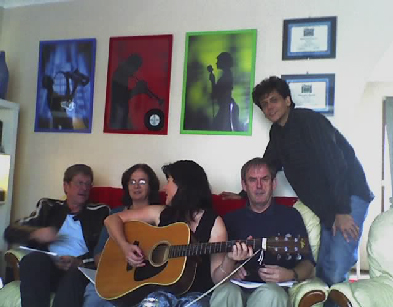| My name is Jacques Mario Gentil and I run the Magesongs School Of Songwriting together with a publishing company, Magesongs Publishing affiliated with ASCAP. Whilst my focus is on songwriting, I believe a great production is the golden platter on which a hit song has to be delivered. Even before pitching to a major artist or A&R, we need to get the song as close as possible to what we believe to be a finished product. The more polished a demo is, the more likely it is to become more than just a demo. |
|
Our process can start with an idea, a title, or
a particular artist we are targeting and what they may be going through
in their life. Whilst I tend to focus my students on a
step-by-step approach to songwriting, I already have some ideas on how a
song should sound very early on, particularly those targeted
towards a specific artist, with their style in mind. Arrangements
are very important in targeting a song, and we will research a genre or
artist to determine what is most likely to grab the audience attention
and help the song become a hit.
It was always my aim to have a mix as radio friendly as possible from the outset, as I believed that sending a 'rough demo' quality track to a label was the quickest way for it to make it be thrown into the discard bin. To this end we spent many hours in Cubase and Cakewalk getting arrangements just right. But we didn't really master our tracks in house as the plug-ins or processor power just weren't available to do it in real time. Taking the mixed track to professional mastering houses did yield some benefit but proved costly where we could spend many times more money on the mastering than we did on the track itself. And then we could not change the track at a later time without having to go through the mastering time and expense all over again. |
|
||||
| |||||
| Mario Gentil September 2010 |
|
Count On Me (Gentil/Murphy). Vocals: Virginia Purton |

